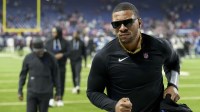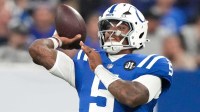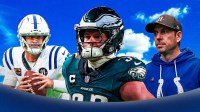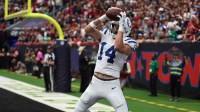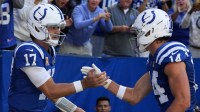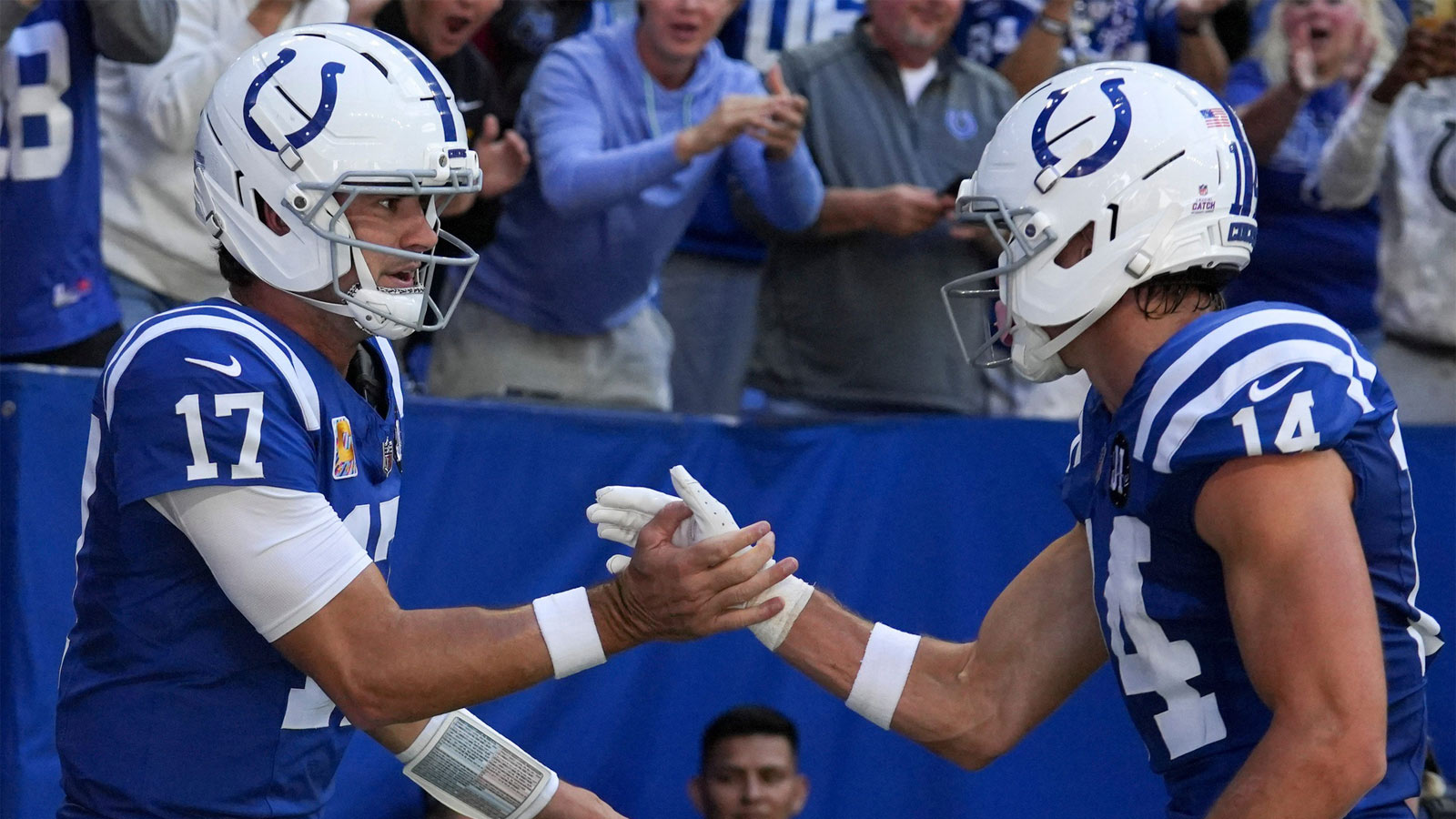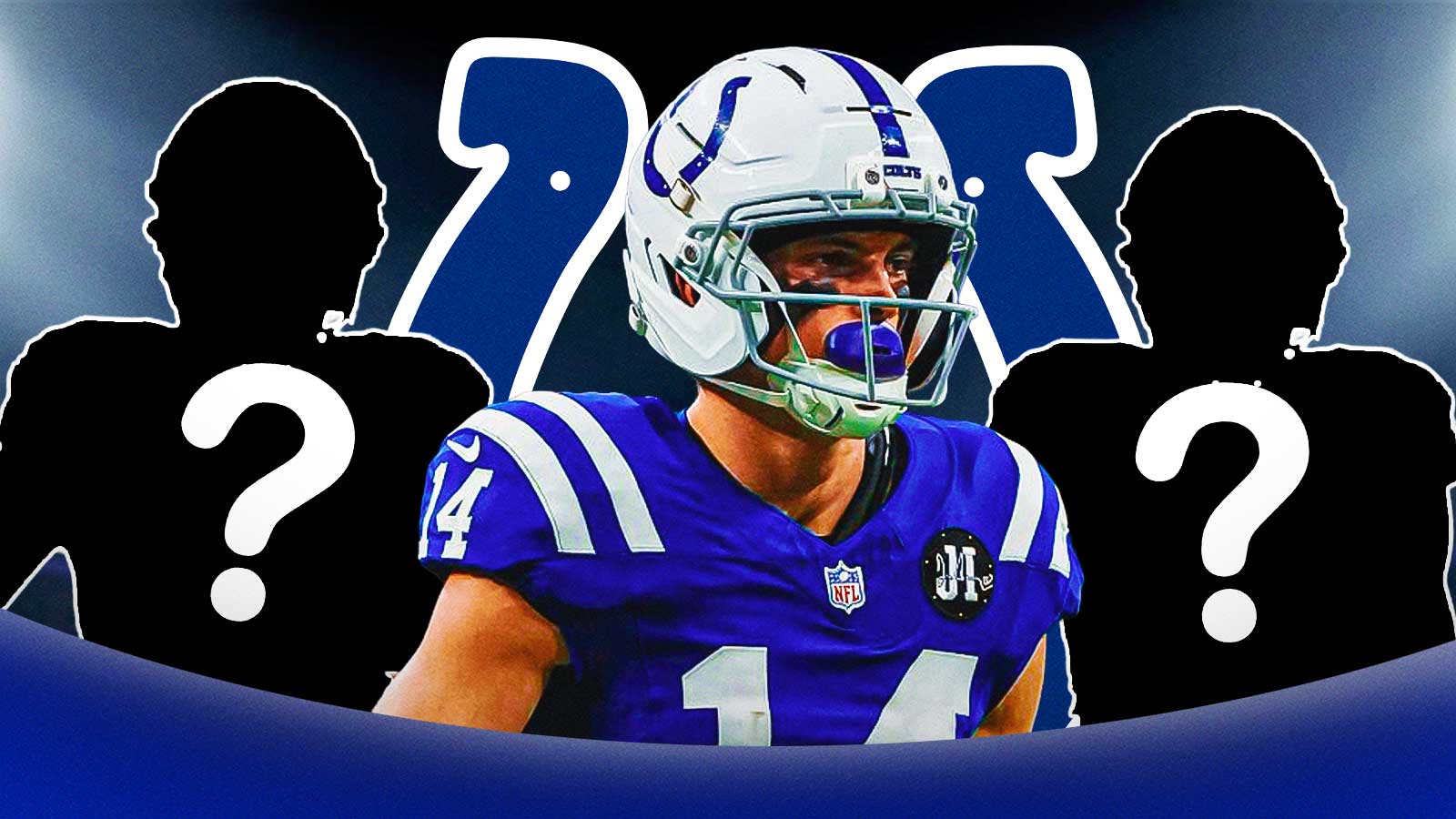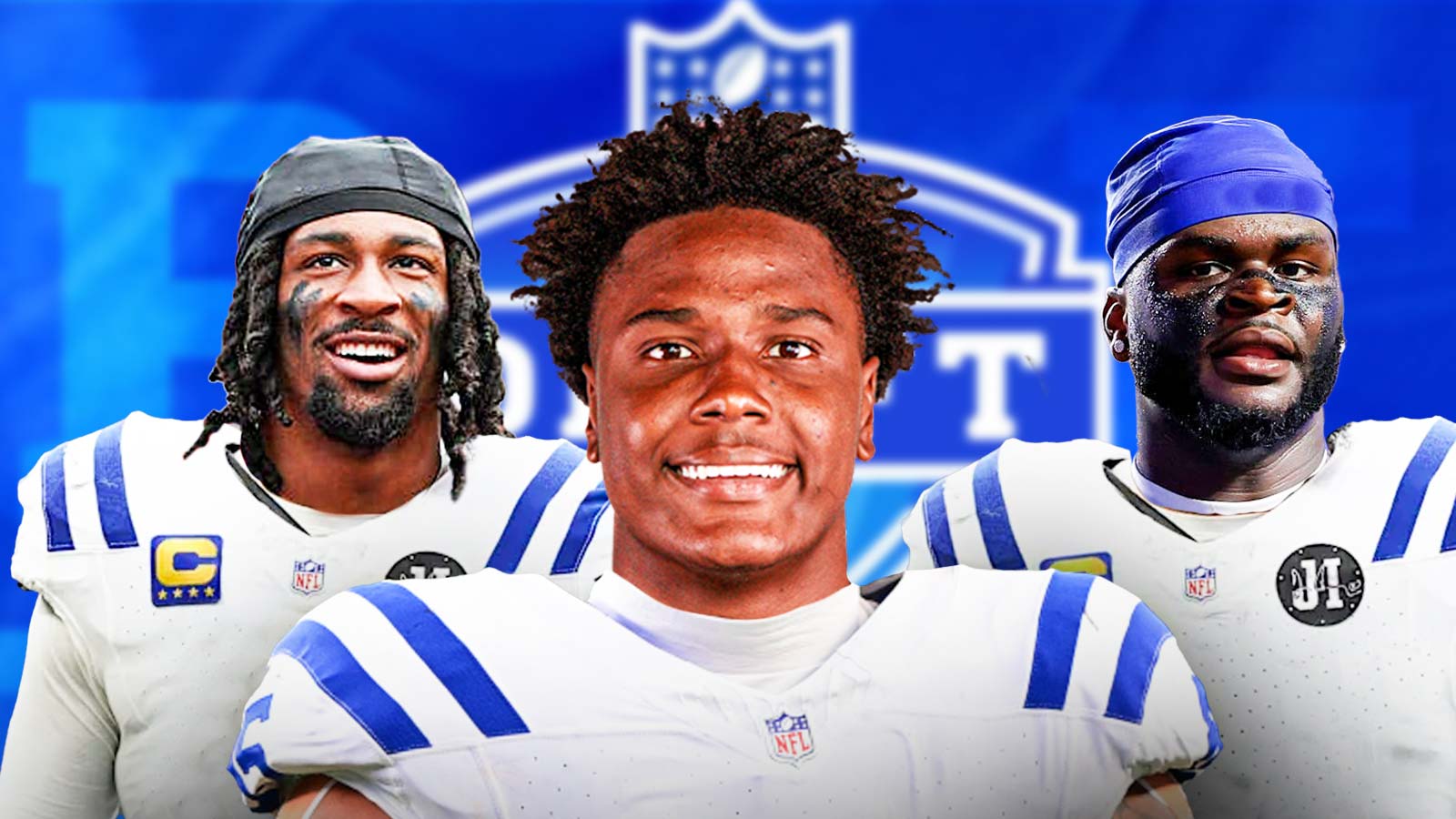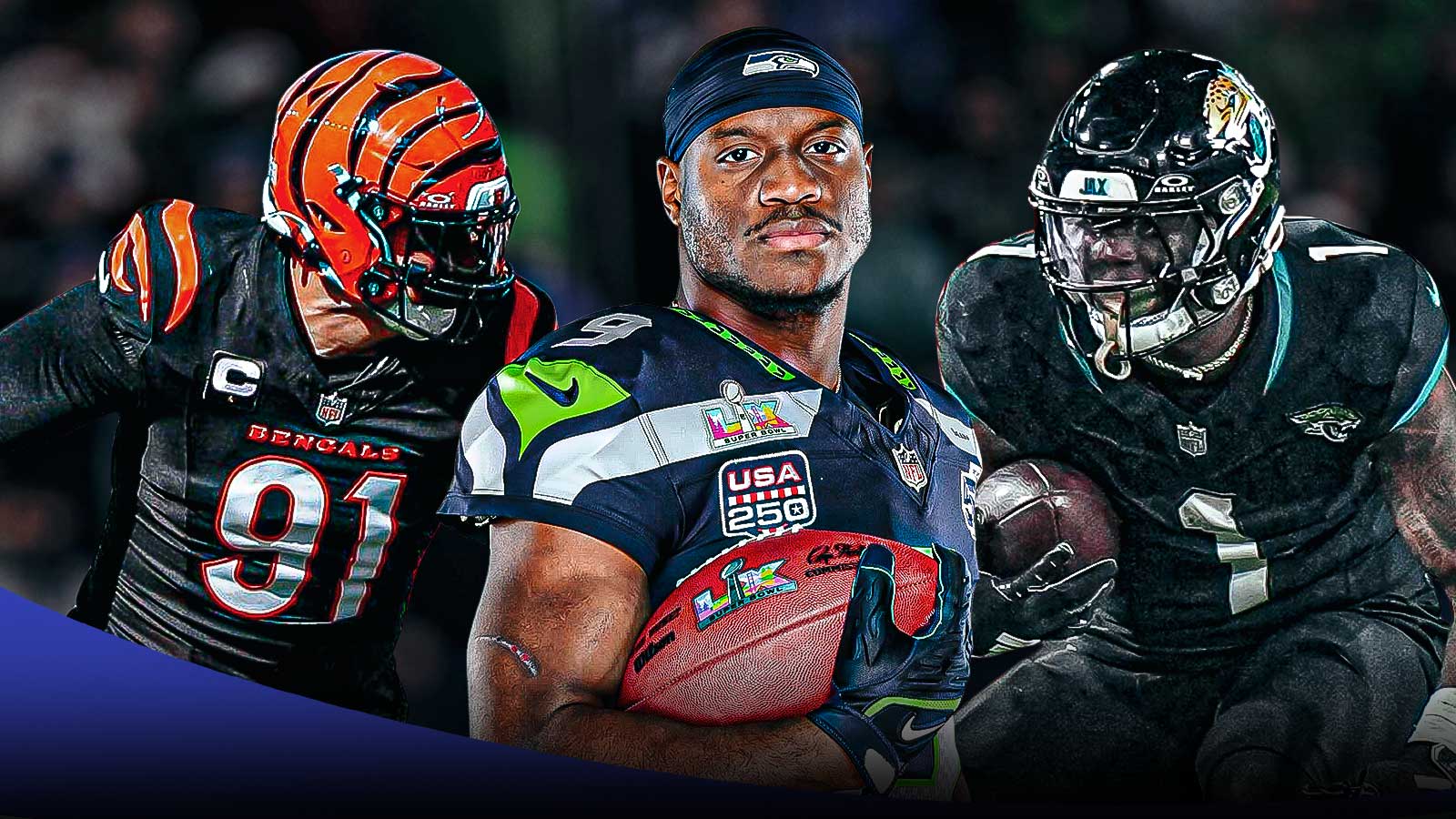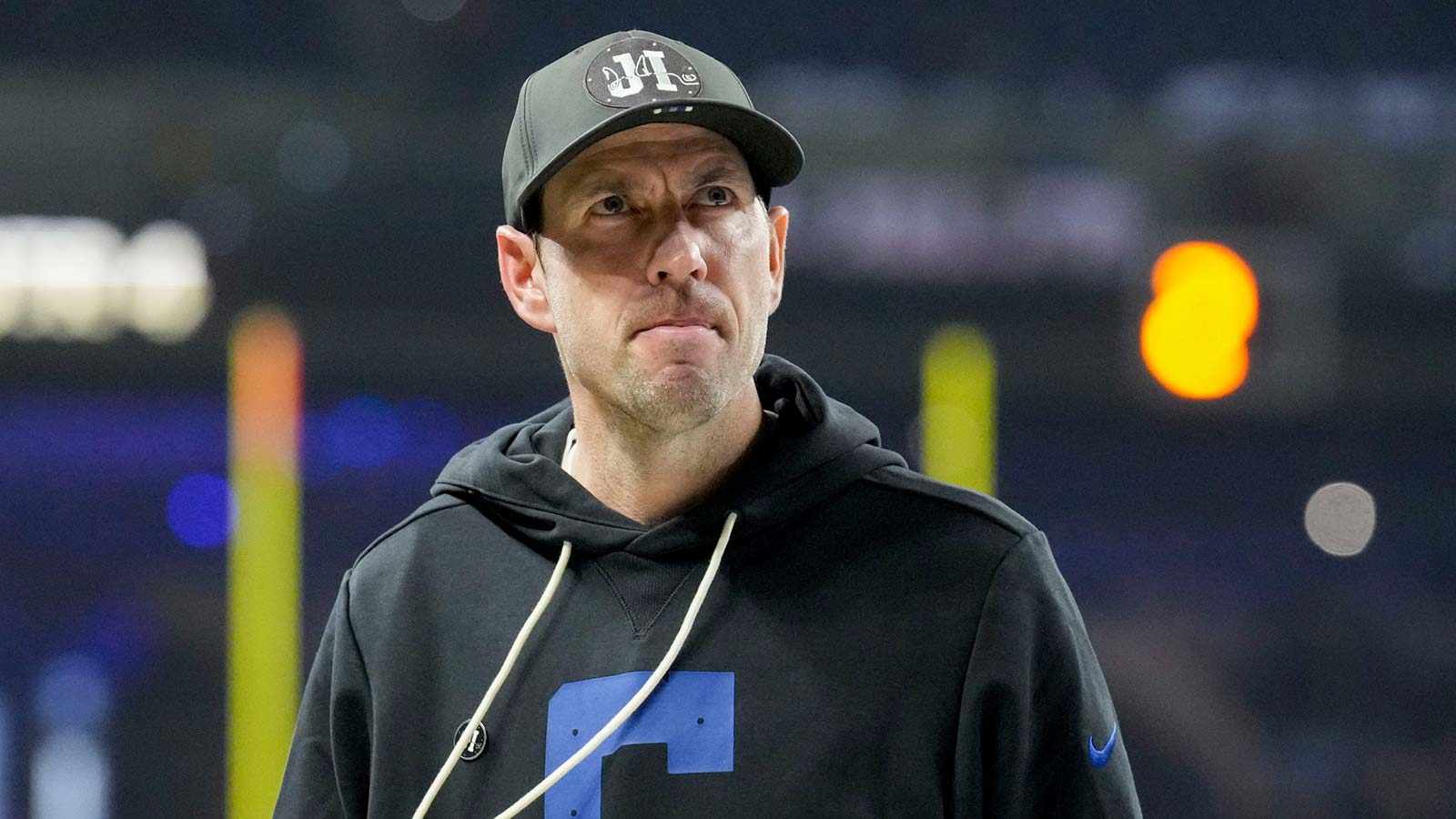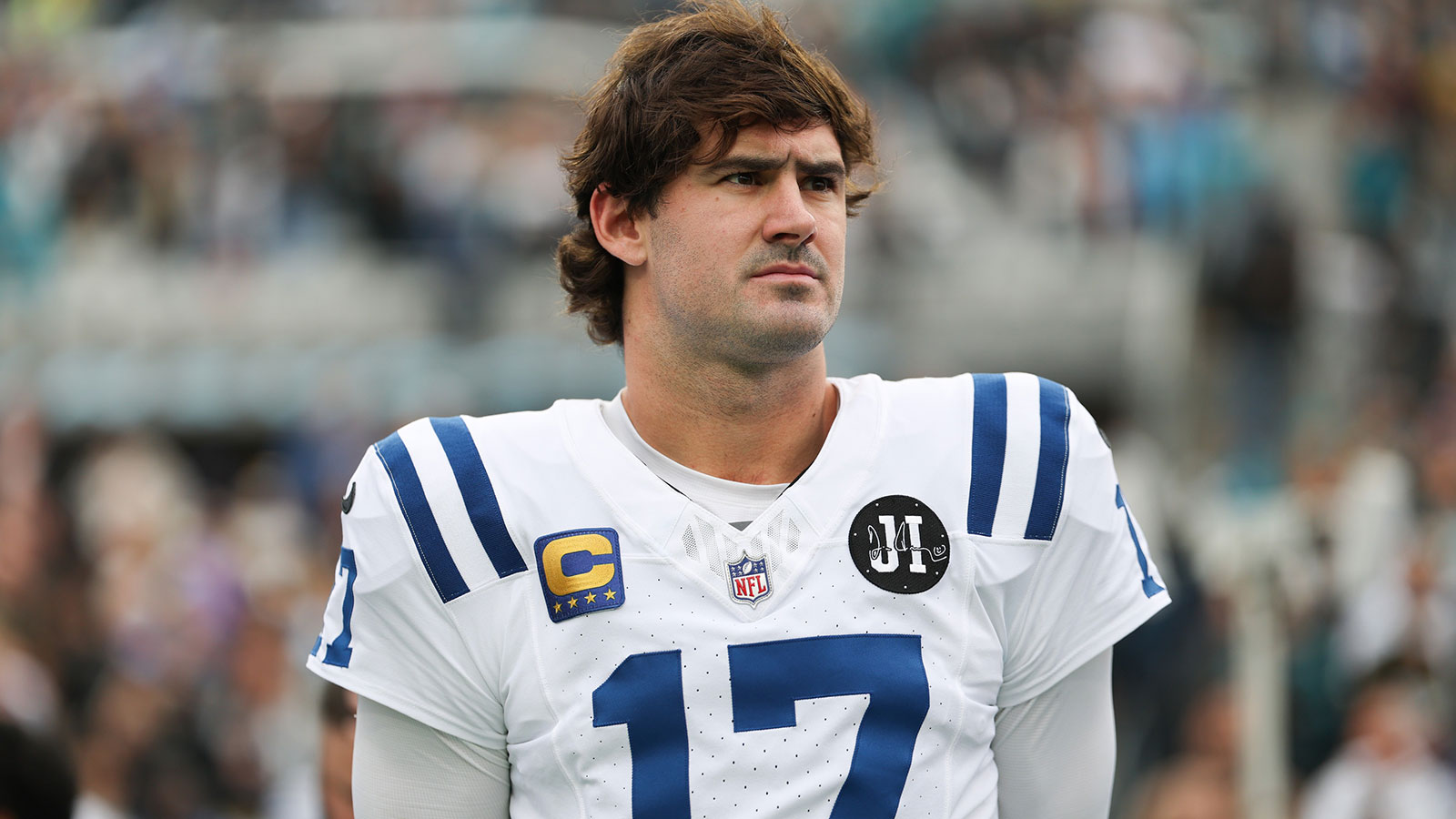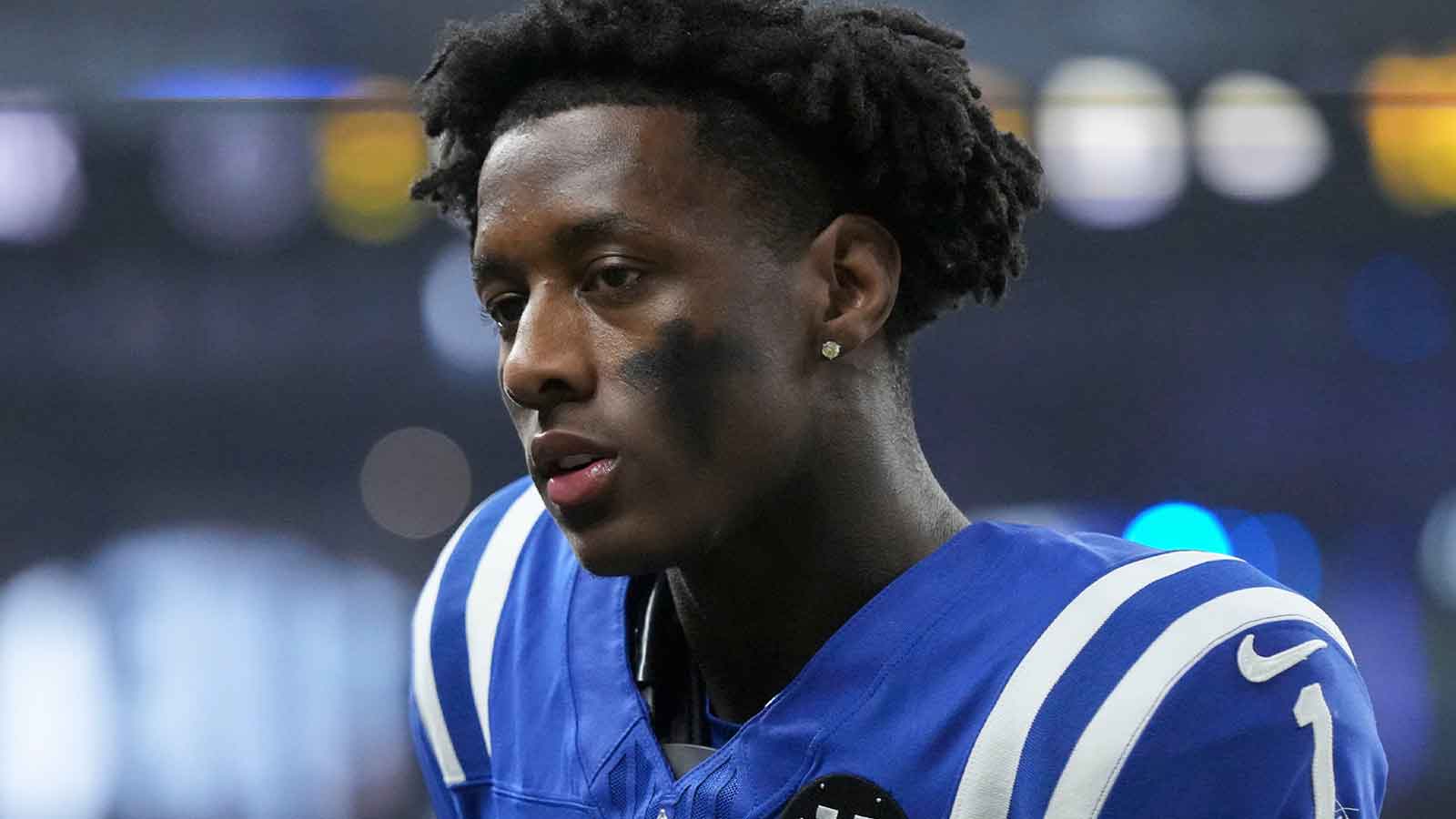The Indianapolis Colts, formerly of Baltimore, are best known for having some legendary quarterbacks throughout franchise history, but the team has boasted some excellent running backs as well.
Here are the three best running back in Indianapolis Colts history.
Honorable mention: Lenny Moore, 1956-1967
Moore was the ninth overall pick in 1956, and over his 12 years in Baltimore gained 11,213 all-purpose yards and scored 111 total touchdowns on his way to a Hall of Fame spot. He was an excellent receiver out of the backfield, and was effective as a runner, but he misses this list because he carried the ball more than 100 times in only three seasons.
It's hard to put him over other backs when he just didn't have a similar quantity of carries, especially relative to other backs in his era. It would have been interesting to see his production if he had gotten a full RB workload, but the others on this list are more deserving.
3. Eric Dickerson, 1987-1991
Dickerson is best known for setting the single-season rushing record, as he ran for 2,105 yards and 14 touchdowns in 1984. He was drafted second overall in 1983 by the Los Angeles Rams, but was on the trade block in 1987 due to contract disputes between him and the team.
The Colts engineered a mega-deal in order to land Dickerson. The trade ultimately included three teams (the Buffalo Bills were the third), four players, and six draft picks. Dickerson ran for over 1,000 yards in just nine games for Indy that season, and spent four more years with the franchise.
He made two Pro Bowls and one All-Pro team, and led the NFL in rushing yards (1,659) and rushing touchdowns (14) in 1988. Dickerson totaled 5,194 yards and 32 touchdowns as a Colt before being traded to the Oakland Raiders prior to the 1992 campaign.
2. Marshall Faulk, 1994-1998
The second overall pick in 1994 out of San Diego State, Faulk was a good player for the Colts, but they were unable to unlock the Hall of Fame talent that he displayed with the St. Louis Rams. With Indianapolis, Faulk dealt with injuries but was still able to run for 1,000 or more yards in four of his five seasons.
He totaled 5,320 yards and 42 touchdowns on the ground, with 2,804 yards and scores coming through the air. Perhaps if he had stuck around to see Peyton Manning become a legend, Faulk would have been more successful with the Colts. But alas, he became unhappy with his contract, and began skipping practices.
He considered holding out for a new deal. Rather than attempt to rectify things with the back, general manager Bill Polian decided to rip the Band-Aid off, sending Faulk to the Rams for second and fifth-round picks after the 1998 campaign.
Faulk improved his yards per carry average from 3.8 with Indy to 4.8 with St. Louis, and was an integral part of some of the greatest offenses in NFL history. The Colts replaced Faulk with another fourth overall selection, and this one became a Hall of Famer as well.
1. Edgerrin James, 1999-2005
1998 Heisman Trophy winner Ricky Williams of Texas was on the board when Indy was picking fourth overall, but the Colts passed on him. They were chastised for this decision. The New Orleans Saints famously traded their entire 1999 class, plus their first and third-rounders in 2000 for Williams at pick #5. In hindsight, Indianapolis certainly made the right choice.
Tasked with heavy burden of replacing Marshall Faulk, “Edge” proved he was up to the challenge by leading the NFL in rushing as a rookie with 1,553 yards. He did the same thing in 2000 with 1,709 yards, running for 13 touchdowns in each season. He was also a significant threat in the passing game, catching 125 passes for 1,180 yards and nine scores over that period.
James played a total of seven seasons with the Colts, finishing with 9,226 rushing yards and 64 rushing touchdowns, and adding 356 catches for 2,839 yards and 11 scores through the air. Unfortunately for James, he left in free agency for the Arizona Cardinals in 2006, the year Indianapolis won the Super Bowl.
James and the Cardinals made it to the big game in 2008, but lost to the Pittsburgh Steelers in one of the greatest matches of all time. James was inducted into the Hall of Fame in 2020, and his presence was certainly a massive help to Manning in the early stages of his career.



